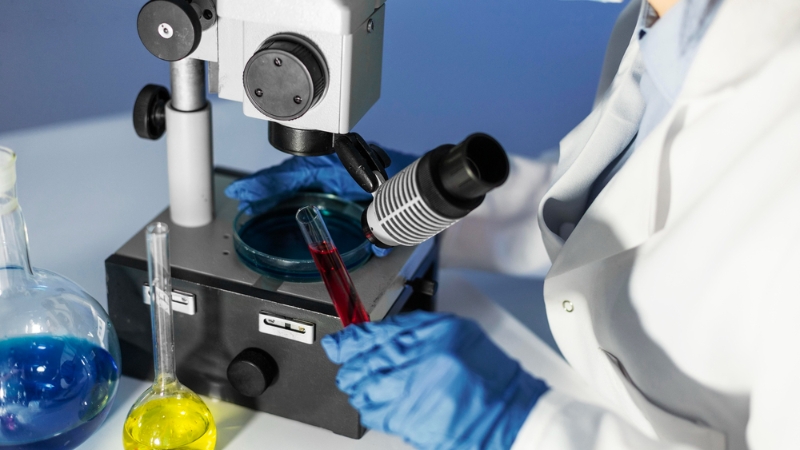Biopsy and Cytology"Diagnostic Tools for Precise Tissue Examination."

Our medical center specializes in providing cutting-edge biopsy and cytology services, which offer accurate diagnostic information for a range of medical issues. Understanding the value of cytology and biopsy in gathering tissue samples and cellular data, our services are optimized for precision, effectiveness, and the prompt detection of health issues. This section will discuss the importance of cytology and biopsy, the conditions they can be used to identify, possible concerns, and the unique qualities that set us apart as a reliable source of top-notch diagnostic services.
What Are Biopsy and Cytology?
Diagnostic techniques called biopsies and cytologies are used to look at tissues and cells, respectively, in order to find anomalies, identify illnesses, and make treatment recommendations. These techniques are essential for determining the type of lesions or tumors and helping to formulate a precise diagnosis.
Why Are Biopsy and Cytology Necessary?
- Tissue Analysis: A biopsy enables the removal of a little sample of tissue from a questionable location and offers comprehensive details regarding the kind of anomalies or lesions.
- Cellular Examination: To identify aberrant cell patterns, cytology studies individual cells, which are frequently collected by means of Pap smears or fine-needle aspirations.
Possible Risks:
Cytology and biopsy are both usually safe procedures. There might be a small chance of bleeding, infection, or soreness at the biopsy site, though. The hazards are negligible, and medical professionals take safety measures to protect patients.
Procedure for Biopsy and Cytology:
- Biopsy: A little tissue sample is taken from the suspected abnormal region during a biopsy. After that, a microscope is used to look for any aberrant tissues or cells in this sample.
- Cytology: Procedures in cytology, such fine-needle aspirations and Pap smears, gather individual cells for analysis. We examine these cells to look for anomalies that might point to the existence of a disease.
- Analysis and Interpretation: By examining the tissue or cells that have been gathered, pathologists can determine whether cancer, infections, or other medical disorders are present. Further diagnostic and therapeutic decisions are guided by the results.
Our dedication to precision diagnostics is demonstrated by our biopsy and cytology services, which provide precise abnormality diagnosis and characterisation. Our goal is to deliver comprehensive information for well-informed medical decisions by utilizing these cutting-edge procedures. Our medical staff is here to help you with any questions or more information on cytology and biopsy.
Top Asked Questions and Answers:
FAQ (Frequently Asked Questions):
+91-9144411108
Emergency Cases

